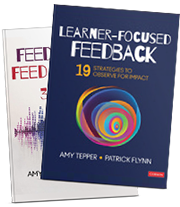
Summer is in full swing for many of us. Have you noticed how our disposition shifts and how vulnerable we are willing to be during this time of year? We walk around in bathing suits, swim where we know sharks swim, expose ourselves to endless UV rays, try new things (parasailing? bacon wrapped corn?), attempt to throw frisbees well, and the list goes on. So why is it when school starts again, some of us are less willing to be so free to take risks and be this vulnerable?
Recently, we discovered our new hero and vulnerability expert, Brené Brown. Clearly, we are late to the barbecue as she has millions of views on her TED talk and a new Netflix special! This month, we poured over The Gifts of Imperfection, started to dig into Daring Greatly, and immediately signed up for her newsletter. You can imagine our glee when we happened upon her thoughts on feedback, our favorite topic. We found one of her quotes, reaffirming a sentiment that has been a part of our work for years and a driving force behind our book Feedback to Feed Forward:
“Without feedback there can be no transformative change. When we don’t talk to the people we are leading about their strengths and opportunities for growth, they begin to question their contributions and commitment. Disengagement follows” (Daring Greatly, p. 197).
In education, we spend days, weeks, months, and years, dedicated to increasing the engagement of our students, but what about the engagement of our teachers as learners? How do we create a culture of feedback?
Summer lovin’ happened so fast…
When we received Brene’s “TGIF” this week. It was like biting into that perfect juicy burger (or watermelon for our vegan friends). It emphasized the point that mastery of new learning requires feedback and difficult conversations. She pointed readers to the Engaged Feedback Checklist, statements to help you “know I’m ready to give feedback when…” Though all are fantastic, we especially latched on to the first two as they closely align to our feedback standards:
- I recognize your strengths and how you can use them to address your challenges.
- I can talk about how resolving these challenges will lead to your growth and opportunity.
And, we especially like
I’m willing to own my part. A step that ultimately requires vulnerability.
We nearly spilled our cold beverages from excitement when we saw these as we just shared our own similar ideas in our presentations at the Visible Learning Conference last week, in what we call our 6 “Feedback Dispositions.”
| Feedback is… | Provider Dispositions – A willingness to… | Receiver Dispositions – A willingness to… |
| Honest & Accurate | Be honest and candid Dedicate time to understand instructional framework and effective teaching and learning Have conversations for growth not ratings | Recognize where you stand against expectations Utilize the framework for reflection and growth Look past a rating as a personal label |
Though we have dedicated much of our work to the quality of feedback (that which feeds forward and is learner-focused), what became clear was the critical role of dispositions of the provider–and thanks to the insightful Stone and Heen–of the receiver as well. Therefore, earlier this year, we examined our 6 standards of observation and feedback and aligned specific dispositions to each, which we include in our upcoming book.
We know you cannot develop high quality feedback to drive change without the skills of observation and tools to guide the evidence collection. But all of the evidence in the world will not result in true engagement and transformation if dispositions–perceptions, beliefs, emotions, and the prevailing tendencies–surrounding feedback of both the provider and receiver are not addressed. These become central to building a culture of observation and feedback that will ultimately drive a culture of learning throughout a school or district. Consider how you can start with ensuring clarity around what feedback that feeds forward looks and sounds like (free resource).
As you prepare to head back into classrooms, consider how our list of dispositions along with Brené’s list can be used to engage all observed teachers as learners:
- In communicating intent and expectations as your school or district observation and feedback practices shift toward a learner-focus and analysis of impact
- As a preassessment of the current status of mindsets, concerns, and strengths within a team or building
- As a resource to engage in conversations with individuals or teams about the feedback experience or for solicitation of feedback about your feedback.
Brene reminds us, “Vulnerability is at the heart of the feedback process.” Channel your summer self long into cooler days and consider a few things that will require you to remain vulnerable during the year…
- When have you encouraged receivers of your feedback to be open about how they are feeling about what you provide and how?
- How can your own self-awareness about how you give and receive feedback change the quality and impact of your experiences with teachers observed?
- How can you help to drive a culture where everyone has the capacity to give and receive feedback?
And maybe for inspiration…
“Summertime, and the living is easy…One of these mornings you are going to rise up singing. You are going to spread your wings and take to the sky.” ~ Summertime
Let’s stay connected
Join our mailing list for new resources and materials from Tepper and Flynn.





Love your blog. Good for all types of employment & everyday life. Especially like the Summertime quote. Keep up the great work. (My first blog activity)
Like your new blog. Great ideas -wish I was 20 years younger to use many
more of them in my program.